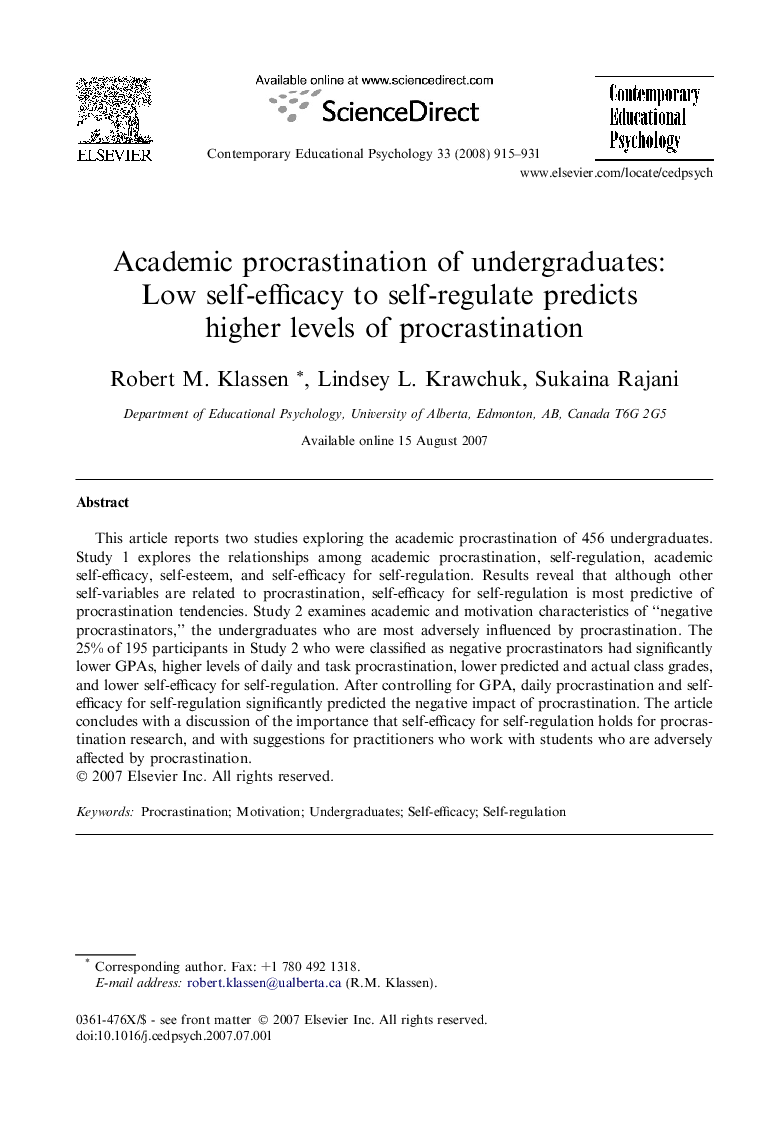| Article ID | Journal | Published Year | Pages | File Type |
|---|---|---|---|---|
| 352836 | Contemporary Educational Psychology | 2008 | 17 Pages |
This article reports two studies exploring the academic procrastination of 456 undergraduates. Study 1 explores the relationships among academic procrastination, self-regulation, academic self-efficacy, self-esteem, and self-efficacy for self-regulation. Results reveal that although other self-variables are related to procrastination, self-efficacy for self-regulation is most predictive of procrastination tendencies. Study 2 examines academic and motivation characteristics of “negative procrastinators,” the undergraduates who are most adversely influenced by procrastination. The 25% of 195 participants in Study 2 who were classified as negative procrastinators had significantly lower GPAs, higher levels of daily and task procrastination, lower predicted and actual class grades, and lower self-efficacy for self-regulation. After controlling for GPA, daily procrastination and self-efficacy for self-regulation significantly predicted the negative impact of procrastination. The article concludes with a discussion of the importance that self-efficacy for self-regulation holds for procrastination research, and with suggestions for practitioners who work with students who are adversely affected by procrastination.
